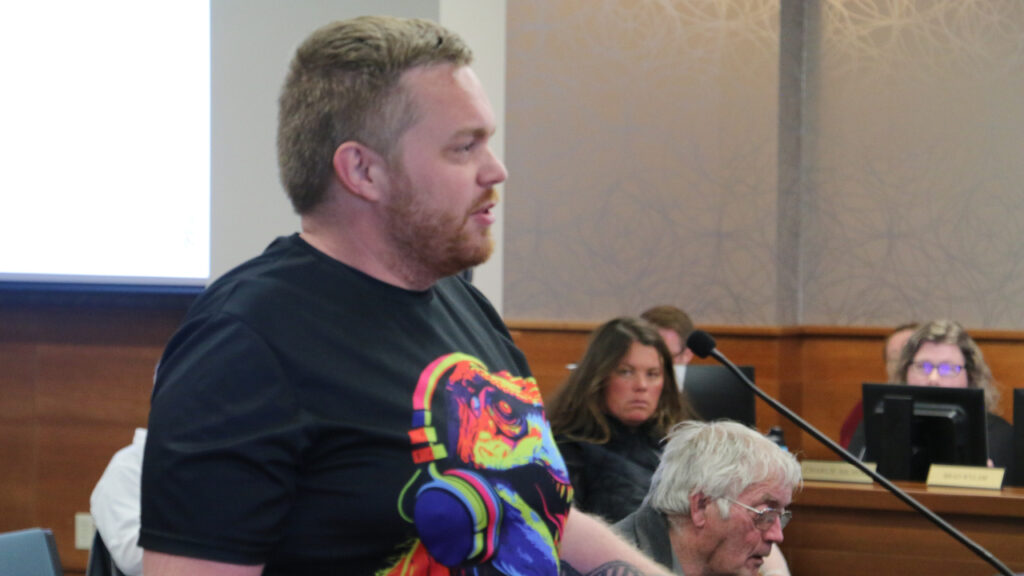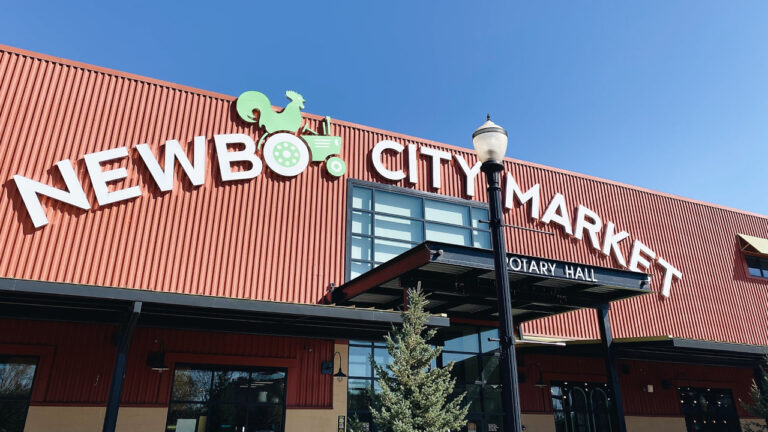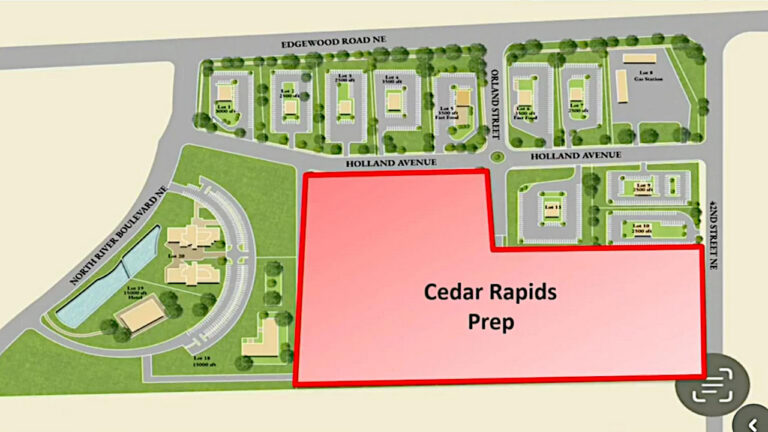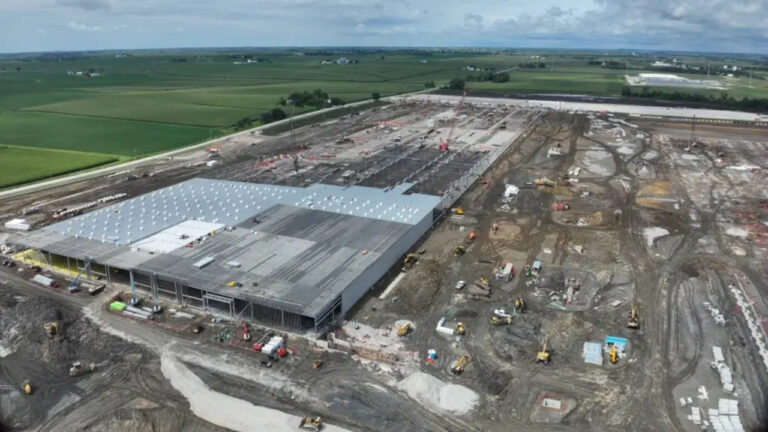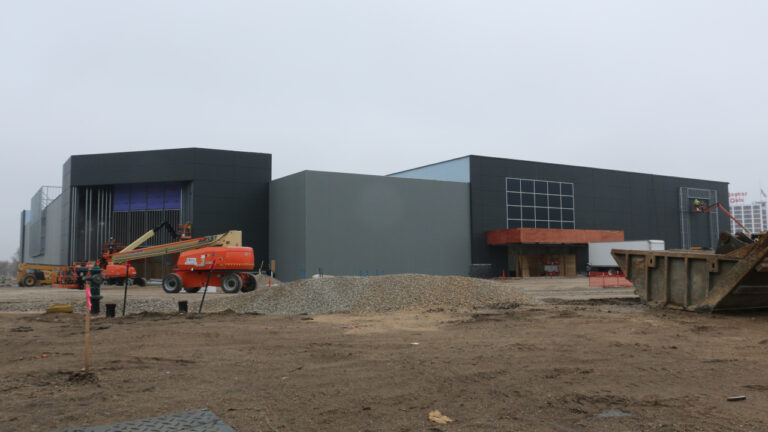The potential reopening of the Duane Arnold Energy Center in Palo is still several years in the future, but Linn County leaders are already beginning the process of developing a county-wide nuclear zoning code.
The process was launched Monday night as part of the Linn County Planning and Zoning Commission’s regular meeting at the Jean Oxley Public Service Center.
About 20 members of the public attended the meeting, many voicing support for the possible restarting of the Duane Arnold Energy Center near Palo, Iowa’s only nuclear power plant.
Linn County Planning and Development director Charlie Nichols said the meeting was part of a process of “opening up the conversation” on nuclear energy governance in the county.
“(We’re) beginning to gather public comment and questions on nuclear power generation and nuclear waste storage, and then set the stage for future public meetings where this ordinance language will be discussed and will be voted on,” Mr. Nichols said.
“Why are we talking about nuclear energy now?” Mr. Nichols asked. “Evolving energy technologies and needs has led to a revival of interest in nuclear power generation, and there’s just an interest in power generation in general. The federal government has declared an energy emergency. The state of Iowa has declared it will start a commission on nuclear energy and how to produce more of it.”
That interest is sparked largely by the expansion and proliferation of data centers, which require large amounts of electrical power to operate. Two such data center projects, by Google and QTS, are currently in development in Linn County.
“Nuclear power is being looked at again as something that could help meet the power needs of today,” Mr. Nichols said. “There is no language addressing nuclear power generation and waste storage in current zoning code.”
Mr. Nichols also pointed out that the county’s role in nuclear energy governance is somewhat limited. A county-wide nuclear zoning ordinance could address issues like site suitability, emergency preparedness, infrastructure and utility needs, environmental impact, economic development potential and decommissioning activities.
However, the federal government regulates nuclear plants themselves, including nuclear safety, radiation and waste handling, as well as issuing licenses for the construction and operation of nuclear facilities and inspecting nuclear facilities, he said.
“Our focus here in Linn County is going to be on local land use impacts,” Mr. Nichols said, “and that’s where zoning comes in.”
Zoning Commission chair Tina DuBois asked if there were examples of similar ordinances in other parts of the country, specifically where the 54 existing nuclear power plants are operating.
“As far as we know, we’ve been doing research on this, we have not found any other ordinances on nuclear power generation,” Mr. Nichols said. “So it’s possible we would be the first.”
Several speakers voiced opinions about the possible restarting of Duane Arnold, mostly in favor of the concept.
Derek Cooney of Cedar Rapids said he supported nuclear energy because it brings high-paying jobs, including construction jobs, and stable jobs for workers in STEM fields.
“Coal reserves will run out, natural gas will run out, and I strongly support the idea of building energy infrastructure,” Mr. Cooney said. “It’s a good thing for us to get this organized now for long-term sustainability of our community and the nation as whole.”
Ben Oceanside of Cedar Rapids, who attended the meeting with his wife Echo and their small child, said he was “excited about having a future for our next generations with clean, sustainable energy.”
“With more data centers growing up around the country, with more electric cars, more electrical infrastructure, we need energy,” he said. “Nuclear is going to be the future of how we do that.”
Wally Taylor of Marion, a member of the Iowa Sierra Club, said he felt any ordinance should address not only the possible restarting of Duane Arnold, but the potential construction of small modular reactors (SMRs) in the future. He also said the ordinance should include protections for nearby residents, as well as provisions for adequate groundwater testing.
Justin Both, decommissioning director for NextEra Duane Arnold LLC, said any decision on possibly restarting the plant is “not being taken lightly.”
“Restarting the facility requires a comprehensive evaluation to ensure safety, reliability and regulatory compliance with the Nuclear Regulatory Commission, the county and the state,” he said.
He also said that while in operation, the Duane Arnold Energy Center supported the local economy with more than $255 million in annual economic activity and provided “more than 600 good-paying jobs.”
“We’re hopeful to bring these opportunities back to the county, and tonight’s meeting is a step in that direction,” Mr. Both said.
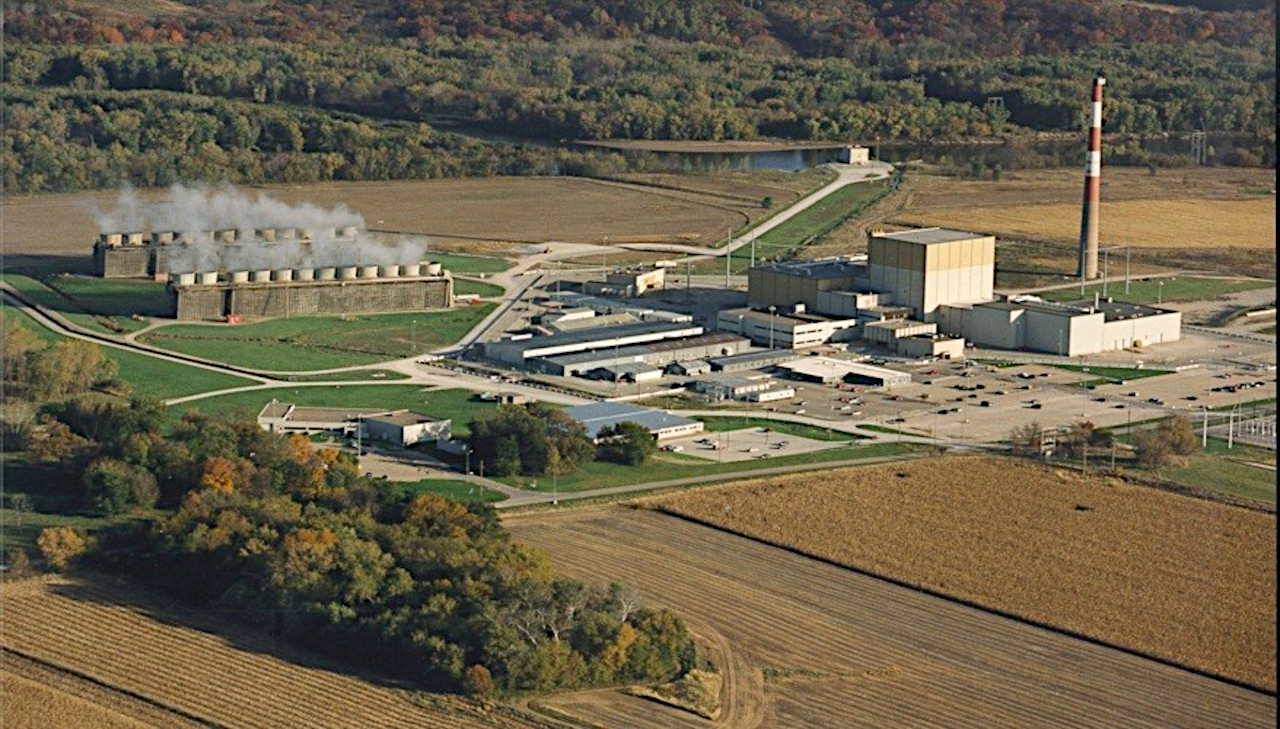
The 615-megawatt Duane Arnold Energy Center, Iowa’s only nuclear plant, which opened in 1974, ceased operations following the August 2020 derecho that brought winds of up to 140 mph to the Corridor, causing heavy damage to the plant’s cooling towers, according to NextEra Energy officials.
The plant was already scheduled to be decommissioned in October 2020 after its main customer, Alliant Energy, paid $110 million in 2018 to exit its power purchase agreement with the plant several years early. At the time, Alliant spokesman Justin Foss said the deal for early decommissioning of Duane Arnold came about as a result of discussions on extending the utility’s power purchase agreement (PPA) with the plant. The prices quoted by NextEra did not seem appealing for Alliant’s customers, Mr. Foss said.
According to a statement released by NextEra in 2020, post-derecho inspections of the plant revealed “extensive damage to Duane Arnold’s cooling towers,” which were used to cool steam after it exited the plant’s turbine. Officials stressed that there was no damage to infrastructure used to cool critical nuclear components, but noted that repairing the cooling towers would not be feasible before its October decommissioning date, leaving the plant incapable of restarting.
However, the plant’s current owner, NextEra Energy Resources, has confirmed that it is actively pursuing the recommissioning process for the plant, having recently filed notice with the Nuclear Regulatory Commission to request a licensing change.
During the company’s Q4 2024 earnings call Jan. 24, NextEra Energy chairman, president and chief executive officer John Ketchum said the plant could reopen “as early as the end of 2028.”
However, company officials stressed they have not yet made a decision on restarting the plant. The company’s filing with the Nuclear Regulatory Commission to request a licensing change has been described by officials as “an important first step” in establishing the regulatory pathway to restore the facility’s operating license and potentially restart the plant.
Mr. Nichols said he hopes to have a draft ordinance ready for review by the commission’s next meeting June 16. He also noted that more information about the proposed nuclear energy zoning code updates, including contact information for submitting comments, is available on the county’s website at https://www.linncountyiowa.gov/1843/Nuclear-Energy


